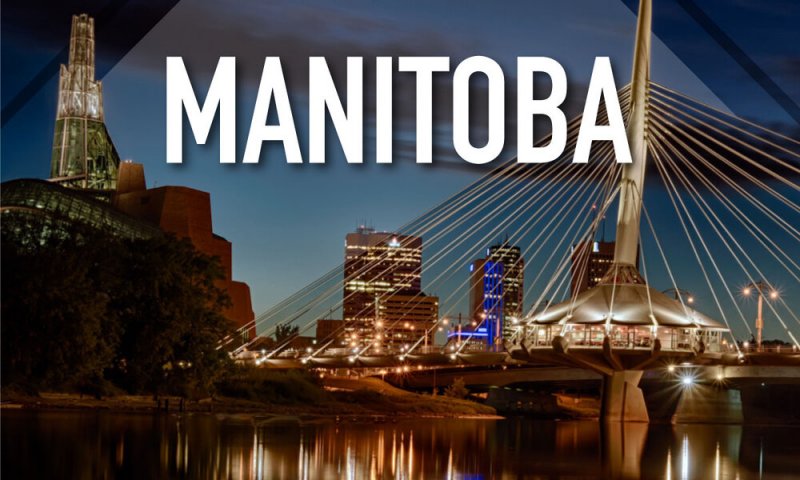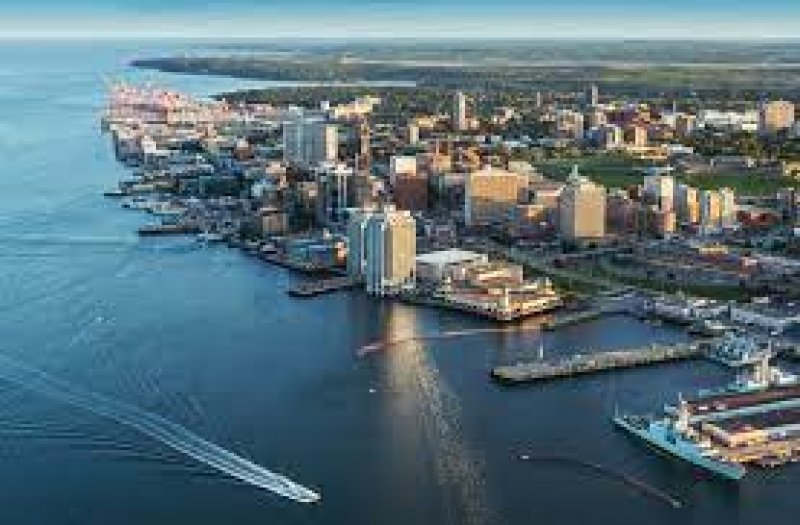
While many rural communities across Canada have shrinking or stagnating populations, a town in Manitoba has found a way to use immigration to help bolster its workforce and keep the town thriving.
In February, Alberta Premier Jason Kenney announced two new programs to help bring new Canadians into rural communities that were dwindling due to the trend of urbanization in the province.
The town of Morden, Man., has been using immigration to support the community’s population and economy for years, and Kenney said the programs being introduced in Alberta were influenced by the success seen a few provinces away.
“There has been a huge success. ... Morden, Manitoba, has doubled their population over the last decade through smart use of the provincial immigration … program,” Kenney said.
“They actively promoted immigrants to settle there, and it’s really revitalized towns like that.”
Morden Mayor Brandon Burley said the program, now known as the Morden Community Driven Immigration Initiative, started informally around 10 years ago when the town, which is currently home to 9,929 people, struggled to fill jobs.
“It was designed to address labour shortage in the region,” Burley said.
At first the area was looking to fill highly skilled jobs, such as accountants, doctors, and dentists, but then started to find they also needed tradespeople and other people with specialized skills. The town then turned to the provincial immigration program to help bring newcomers into the community.
The program operated unofficially for around seven years, but over the past three years, Burley said the town has publicized it more to help tell the story of Morden’s success.
“Over the last few years, [it has] been a cog of our economic wheel, rather than just a spoke,” Burley said.
As the town welcomed more new Canadians, there was an unforeseen impact, Burley said — the town promoted so much economic activity in the community that more children who grew up there were able to stay or move home because of the job opportunities.
Since the program began, Burley estimates it has brought more than 1,000 people into Morden, with members hailing more than 90 countries of origin. Per capita, the mayor said he thinks the town is the most diverse in the country.
In the recent census data released from Statistics Canada in February, Morden was the fourth fastest-growing community in the province, with an increase of 14.5 per cent since 2016. The community grew from 8,668 people to 9,929 people and the mayor said the immigration program has played a big role in that growth.
Other rural communities across Canada have seen a trend in the opposite direction.
In Alberta the fastest growing communities are bedroom communities around the big cities, including Beaumont, Airdrie, and Cochrane, while rural communities are shrinking. Athabasca County, Lac la Biche County, Brazeau County, and Barrhead County saw rapidly-shrinking populations, ranging from a decrease of 11.6 per cent to 6.5 per cent.
Burley said using immigration to help bolster the economy can be a good solution to help battle the trend of shrinking rural municipalities.
To make the program work, Burley said the town listens to local businesses to find out what jobs they are struggling to fill. Then the town looks at a roster of resumes they have on hand from thousands of people who want to come to Canada and select someone who can fill the vacancy.
The town contacts the candidate, who then comes to the community for a five-day exploratory visit. The person then meets with the Manitoba immigration program, and returns to the country of origin, and waits to get a permanent residency.
When they come to the community, they don’t always come to fill the specific job that started the search.
“That’s kind of the peculiarity of our program. They’re not coming over with a job offer in hand all the time,” Burley said, adding the community always has more jobs and nearly every company in town is hiring.
Right now, recruiting for the town isn’t difficult, as Morden has a big reputation for being a community that welcomes immigration.
Since the town has had so much success, many of the people looking to come to Morden already have friends or family in the community, who let them know it’s a fairly quick process and many opt to apply directly with the town, rather than through a third-party immigration service.
“People coming to Canada don’t have to pay a consultant to enter our program. They can directly apply and there’s no middle man,” Burley said, adding it can take anywhere from three months to two years before the process is complete.
Once the new Canadians arrive in town, Burley said the town seems to do a good job of keeping them in the community.
The whole community has embraced the identity of being a town of newcomers, Burley said.
“We don’t want to be a stopgap. We want to be a place where people live and work and raise their families,” Burley said.
The program is supported from the top down and has been the centre of the local council’s attention to help ensure Morden is recruiting and retaining newcomers.
“We’ve adopted it as an identity,” Burley said.
The town has events and programs for newcomers, such as nights where new Canadians can get together and play games.
The town also has a multicultural winter festival where people of different cultures come together to share their food and traditions with the town.
The mayor takes the immigration plan personally. Once a month he drives to Winnipeg to greet and pick up a bunch of exploratory visitors. Once people arrive and settle in Morden, the mayor said it’s important to pay attention to how they settle in and make sure they are doing well in the community.
“You have to be prepared to invest in [it] yourself — not just taxpayer dollars or resources, but actually investing people into these efforts,” Burley said.
The town offers settlement services and transitional housing to help remove some of the stress of the first months in a new country.
Burley said it is important to listen to and adjust the program to their needs, as they have made a major life investment to be part of the community.
Burley said while the program is highly successful for Morden, it might not be the right fit for every community.
“I would caution communities that are going to do it to know what they’re doing, and to make sure they’re ready to invest in these programs, because it takes a substantial amount of leadership,” Burley said.
“If you have a city council that isn’t prepared to embrace immigration, it’s not going to be for you,” Burley said, adding if communities bring in new Canadians but don’t offer the right services, those people will leave and live in a different city.
A town in Alberta has also been using immigration to help support its population, and Kenney, and the new immigration streams could produce similar results.
Brooks Mayor John Petrie said its meat-packing plant has been a bring driver to attract immigrants to the community and now Brooks is made up of at least 30 per cent new Canadians.
“When our meat-packing plant expanded, most of the workers had come from Africa at that time. They were refugees and they needed work,” Petrie said of its expansion in the early 2000s.
Once the plant expanded, it started a wave of immigration into Brooks, Petrie said, and the community worked hard to embrace the new Canadians.
“We often call ourselves the community of 100 hellos, because even at the JBS meat-packing plant there are about 50 or 60 languages spoken out there,” Petrie said.
The new Canadians were brought in by the meat-packing plant, which has switched ownership several times, and the owners would travel across Canada to recruit for jobs they needed to fill. The town worked with the plant to bring in Canadians and temporary foreign workers to fill the vacancies, Petrie said.
The plant has remained in the community as a large employer and has helped continue to sustain the population in Brooks.
“A lot of our rural communities are struggling with population,” Petrie said. “We were lucky in Brooks. We had 3.3-per-cent growth, which is about 300 or 400 people from the last census,” Petrie said.
But the communities that surround Brooks and across southern Alberta saw drops in population or a stagnation. In Medicine Hat, a city of 65,000 only an hour away, the community only grew by 11 people over the past four years.
“I was quite happy when Premier Kenney announced those programs and I think he’s aware of the struggles that rural communities have in attracting people,” Petrie said.
“And if there is a way to get more people in our community, the better it is.”





There is a growing need to recruit internationally-trained nurses in Canada due to chronic and increasing labour shortages in Canada’s hospitals and clinics.COVID-19’s latest Omicron-fuelled wave